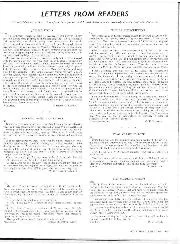
The spares problem
Sir, Mr. J. Fraser in his letter comments on the lack of spares for his Daimler; let him not think himself alone in this matter. You Mr. Editor, Sir, are…
Why has Renault CEO Luca de Meo re-hired Flavio Briatore? It’s an obvious question given Briatore’s infamous firing by Renault in 2009 for the 2008 Singapore Grand Prix scandal. Briatore was the team boss who ordered the subversion – of Nelson Piquet Jr deliberately crashing just after team-mate Fernando Alonso had made a bizarrely early pitstop from the midfield, winning Alonso the race – to be enacted. Briatore didn’t think it up, but he instructed the team to do it. That’s why he was banned from F1 for life (a ban overturned on appeal a few years later). The negative publicity to Renault of the cheating charge – which lost it its ING banking sponsorship – took a long time to subside. Yet de Meo has effectively re-lit that fire. From a PR perspective it looks disastrous for Renault and not great for F1.
Whatever you think of Briatore, he’s a clever guy. He tends to think outside of the box, his mind works in a very creative way (sometimes too creative admittedly!). The positive qualities he brings will not necessarily be found within a formal corporate structure. In his role as executive adviser he has effectively been given full scope for hirings and firings within the team. So is this de Meo’s strategy to rebuild a team which has fallen away so dramatically over the last couple of seasons, using Briatore’s lateral thinking to fast-track the team back towards the front? Maybe.
But almost simultaneous with Briatore’s return was the strong rumour that from ’26 the team would not necessarily be running Renault power units. Briatore has been discussing the possibility of a supply from Mercedes. At the time of writing that was described as ‘nowhere close’ to being agreed and the price would need to be attractive to Mercedes. But the significance is that it’s being discussed at all and that Briatore is leading that discussion. To the extent that in his efforts to secure the services of Carlos Sainz, he’s promised him a Mercedes power unit (from ’26). He’s behaving like a man in charge and one with a definite plan.
Which then begs the question of why would Renault, a major automotive company, not insist that its F1 team uses Renault power units, as produced in Viry, home of decades of F1 engine innovation and success? The turbocharger, pneumatic valves, blown diffuser software, all those world championships, etc. It’s a magnificent heritage and the factory is currently working flat out on the new 2026 power unit. With such an asset and the investment required to run it, why would it pay to run an engine from a rival (admittedly one with which it has an automotive link)?
So de Meo has hired a high-profile person who has previously sullied the reputation of the company in a very public way and appears to be endorsing a decoupling of the F1 team from Renault’s own F1 engine factory. That doesn’t stand up to any conventional straight-line thinking. Who said anything about straight lines?
“Flavio’s behaving like a man in charge and one with a definite plan”
Another of Briatore’s skills is as a negotiator. If de Meo was thinking in terms of getting Renault out of F1 but needed to maximise the value of the asset that is the F1 team in its sale, would Briatore be a suitable man for that? Damn right he would. If that was Briatore’s assigned task, how might he go about it?
He would probably prioritise a disentanglement of the team from the factory engine supply. Especially as Viry has not produced a great engine in the decade of the hybrid regulations. The Enstone team would be far more attractive if it came with a deal to run a fully competitive power unit, from Mercedes say. Concurrently, he would look to make a few key hirings to shore up a team which has been leaking high-calibre people for the last year or so. Totemic among those recruitments would be a high-profile winning driver, like Carlos Sainz, say.
The Enstone staff have been assured the team is not being sold. Maybe not right now, it’s not. But once a few key contracts have been put in place by the great deal-maker Briatore, it might be. He would for sure negotiate a better deal than if it were left to corporate employees, especially if he were motivated by a percentage commission.
The last time Renault pulled out of F1 as an engine supplier, at the end of 1997, it sold the rights to manufacture its engines – to Briatore. He set up Supertec which then supplied several teams (including the Enstone-based Benetton team which he’d recently left) at a very healthy profit. When Renault decided to re-enter F1 a few years later, it bought the assets of Supertec and re-employed Briatore to run the former Benetton team re-badged as Renault. This is not quite history repeating, but as a case study of Briatore’s creative lucrative smarts and his association with Renault, it’s easy to see why de Meo may have decided Briatore is who he needs.
Meantime what might de Meo do with the great Viry facility and its highly skilled staff? Horse Powertrain is a joint venture between Renault and Chinese manufacturer Geely. It was established only this year. It will make automotive hybrid power units to be fitted to both Renault and Geely road cars. Viry would surely be a fantastic R&D centre for the project.
Since he began covering grand prix racing in 2000, Mark Hughes has forged a reputation as the finest Formula 1 analyst of his generation
Follow Mark on Twitter @SportmphMark